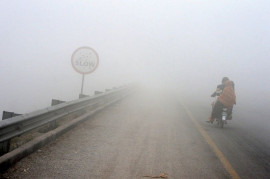
The oceans, encompassing over 70% of the Earth's surface, are vital lifelines for biodiversity and economic prosperity. They are reservoirs of opportunities for sustainable development, encapsulated within Sustainable Development Goal (SDG) 14: 'Life Below Water'. This goal emphasises conserving marine resources while leveraging their potential for economic growth. Central to this ambition is the concept of the Blue Economy, introduced by Gunter Pauli in his 2010 book The Blue Economy: 10 Years, 100 Innovations, 100 Million Jobs. Pauli envisioned oceans as "development spaces", where conservation aligns with the sustainable use of resources.
The World Bank defines the Blue Economy as "the sustainable use of ocean resources for economic growth, improved livelihoods, and jobs while preserving the health of ocean ecosystems". Similarly, the European Commission describes it as encompassing "all economic activities related to oceans, seas, and coasts, including fisheries, aquaculture, maritime transport, and renewable energy". This vision encompasses fisheries, aquaculture, maritime shipping, renewable ocean energy, coastal tourism and marine biotechnology. According to a World Bank report, globally, the Blue Economy generates around $2.3 trillion annually, contributing to food security, poverty eradication and climate change mitigation. According to FAO, marine ecosystems are integral to global well-being. Oceans provide sustenance to over three billion people, with fish accounting for 16% of the global animal protein supply. Livelihoods for 660820 million people rely on fisheries and aquaculture, with women playing a critical role, particularly in fish processing, where they hold up to 90% of jobs. Furthermore, the World Bank report says that oceans absorb 25% of anthropogenic CO2 emissions, with "blue carbon" sinks such as mangroves and seagrasses proving five times more effective than tropical forests at sequestering carbon.
For Pakistan, the Blue Economy is an untapped frontier. With a 1,046 km coastline and a vast Exclusive Economic Zone (EEZ) by the Arabian Sea, Pakistan's maritime potential remains largely underutilised. The maritime sector contributes only 2.4% of GDP, as per the Pakistan Economic Survey 20232024, with fisheries exports at just $450 million annually. In contrast, regional peers earn billions from marine resources. Estimates suggest Pakistan could generate over $100 billion annually from its Blue Economy with the right strategies (World Bank Group report). However, Pakistan's marine economy faces several challenges. Overfishing, habitat degradation, pollution and unregulated coastal development hinder sustainability. Illegal, unreported and unregulated fishing exacerbates the problem, with global losses estimated at $1022 billion annually as per the FAO Report. Climate change, including rising sea levels, coastal erosion and ocean acidification, further threatens livelihoods and ecosystems. Fragmented governance structures and inadequate infrastructure add to these issues.
Despite these hurdles, opportunities abound for Pakistan to leverage its marine potential. Examples from Morocco, Indonesia and Oman highlight the impact of governance reforms and targeted investments. Morocco, backed by the World Bank, developed its aquaculture sector, creating rural jobs, especially for women. Indonesia employs mobile technologies to monitor fisheries, improving biodiversity conservation. Oman's fisheries management is a benchmark for balancing ecology and economic growth. To realise its Blue Economy potential, Pakistan must implement a comprehensive approach. Reforms like Integrated Coastal Zone Management (ICZM) and marine spatial planning can align conservation with economic activities. Clear policies and tenure rights can empower communities to adopt sustainable practices. Digital tools for maritime mapping and data-driven monitoring can improve decision-making and resource management. Public-private partnerships in fisheries, renewable energy and marine biotechnology can foster innovation and economic diversification while attracting needed capital. Pakistan's scenic beaches, such as Gwadar and Kund Malir, have immense potential for eco-tourism. Investments in infrastructure, conservation and community engagement can attract global visitors and preserve natural habitats. Small-scale fishers and women in supply chains must be prioritised through policies and capacity-building programmes to ensure equitable access to resources and inclusive growth. Regional cooperation to address shared issues like illegal fishing and marine pollution can also drive collective progress. Empowering coastal communities is central to the Blue Economy. Small-scale fishers, often the most impacted by resource degradation, must have a role in governance and decision-making. This not only ensures equity but also enhances compliance with sustainable practices. Globally, fisheries rebuilding efforts are more successful when local stakeholders are involved.
Pakistan's reliance on maritime transportation for 95% of its imports and exports underscores the strategic importance of coastal infrastructure (Pakistan Economic Survey 202324). Modernising ports and improving logistics can make Pakistan a regional maritime hub, boosting trade efficiency. Renewable ocean energy projects, like tidal and wave energy, can help address Pakistan's energy crisis while cutting carbon emissions. Protecting mangroves and coastal ecosystems is crucial for carbon sequestration and climate resilience. Declining mangrove cover threatens biodiversity and causes economic losses exceeding $4 billion annually, as seen in Belize. Restoring these habitats can deliver ecological and economic benefits.
The oceans are Pakistan's gateway to sustainable development. Localising SDG 14 and embracing the Blue Economy, Pakistan can transform its marine resources into a foundation for economic growth and environmental stewardship. Visionary leadership, innovative governance and a commitment to sustainability are essential to secure Pakistan's maritime future, set a global example and ensure its oceans remain a source of life and livelihood for generations to come.

















1734778885-0/Untitled-(10)1734778885-0-270x192.webp)

COMMENTS
Comments are moderated and generally will be posted if they are on-topic and not abusive.
For more information, please see our Comments FAQ